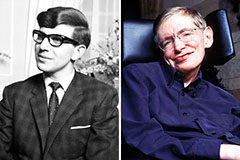Metal Gear Sound 2: Sons of Liberty, introduced in 2001, remains The most daring and intellectually ambitious game titles at any time created. Directed by Hideo Kojima, the sport took all the things lovers cherished about the original Steel Gear Stable and utilised it as being a Basis to tell a Tale that was less about stealth and more details on the manipulation of information, identification, and participant expectations.
Established two several years following the first recreation, MGS2 commences with Sound Snake investigating a new Metallic Gear aboard a tanker. Immediately after an explosive prologue, the narrative shifts drastically, introducing gamers to a brand new character: Raiden. This unexpected change was controversial at enough time, as admirers anticipated to Enjoy as Snake. Nonetheless, the swap was intentional, serving the sport’s deeper goal — to take a look at what it means for being a hero, And exactly how media and society construct identification.
Raiden’s journey from the Big Shell, a supposed environmental cleanup facility taken in excess of by terrorists, mirrors Snake’s earlier adventures. This repetition is not any incident; it’s part of the game’s overarching commentary on simulation, repetition, and Management. 88clb.co The villains, an AI collective known as the Patriots, intention to manage human actions by filtering and managing information. They argue that a lot of flexibility of knowledge brings about chaos, and only picked “truths” need to be preserved.
These themes were revolutionary at the time, predicting a world by which digital info is overpowering, manipulated, and weaponized. Extended just before terms like “phony news” or “algorithmic bias” entered general public discourse, MGS2 warned of the long run wherever real truth by itself may be curated.
Gameplay-smart, Sons of Liberty was a leap forward. It released dynamic enemy AI, interactive environments, and various strategies to finish goals. Stealth was more refined, with new applications and ways that extra depth and technique.
Graphically, it pushed the PlayStation two to its boundaries, supplying realistic physics, in-depth character styles, plus a cinematic encounter supported by an orchestral rating and prime-tier voice acting.
Currently, Metal Equipment Sound two is viewed not merely like a game, but as an announcement. It blurred the line involving player and character, fiction and fact. Kojima didn’t just make a sequel — he designed a prediction, one that feels additional related in now’s digital earth than ever in advance of.
 Michelle Pfeiffer Then & Now!
Michelle Pfeiffer Then & Now! Robert Downey Jr. Then & Now!
Robert Downey Jr. Then & Now! Kelly Le Brock Then & Now!
Kelly Le Brock Then & Now! Monica Lewinsky Then & Now!
Monica Lewinsky Then & Now! Stephen Hawking Then & Now!
Stephen Hawking Then & Now!